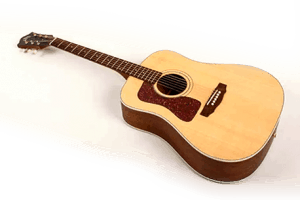
Wood clarinets are considered to have a richer and warmer tone than plastic clarinets. However, they require more care and often come at a higher price point. Plastic clarinets are great for beginners as they are durable and more affordable. A well-made resin body can also provide a durable alternative to wood for scenarios where it is not practical to play a wooden instrument.
When looking to purchase a new clarinet, players have to choose between a wooden or plastic body. The short answer is: neither is universally “better”. While wooden clarinets (typically made from grenadilla or mopane) offer a warm and complex tone often preferred by advanced players, plastic ones have the durability and stability needed for beginners and outdoor use. The right choice comes down to your skill level, budget and where you’ll be playing.
Differences Between Wooden Clarinets and Plastic Clarinets
The body material of a clarinet influences its tone and durability. Understanding the trade-offs can help players make a smarter choice. Most professional clarinets, including models by Buffet Crampon, Trevor James, Yamaha and Henri Selmer, are made from grenadilla wood, with a few now also made from Mopane. Grenadilla is a dense African blackwood that creates a resonant, rich sound that many professional players prefer. Plastic clarinets are usually made from ABS resin. This makes them ideal for young players still learning proper care habits, as they are resistant to cracks and offer a consistent performance.
Sound & Tone
A clarinet with a wooden body produces a warmer sound. Its darker and rounder tone is more noticeable when playing solo or in small ensembles. The wood responds with subtle tonal flexibility, giving players more dynamic control. On the other hand, a plastic body projects a brighter tone, which is more consistent across registers.
Playability & Consistency
The pitch of a wooden clarinet is more volatile and may fluctuate with the temperature and climate. This is due to the subtle natural variation in the wood’s grain. Players often need to regularly adjust their reed and embouchure before playing. Plastic clarinets are manufactured with precise tolerances to ensure their consistency. This allows them to hold a pitch more reliably, making them easier to learn with, but they can be less adaptable and expressive for an advanced player.
Durability
Sudden changes in temperature and humidity can cause wooden clarinets to crack, split or swell. They must be stored properly and kept away from sunlight and extreme temperatures. Plastic clarinets are more immune to any climate stresses, making them more ideal for playing outdoors (e.g., in marching bands). Some musicians who own both a plastic and a wooden clarinet will often reserve their plastic one specifically for outdoor use. They can still achieve a nice tone with the right mouthpiece and barrel set-up.
Instrument Care & Maintenance
There is a huge difference between wood and plastic clarinets when it comes to care and maintenance. A wooden clarinet must be stored in its case at a consistent, moderate temperature and humidity level. There is also what’s known as a “break-in” period for a wooden instrument, where a player should gradually build up how long they are playing the instrument each day over several months, so as not to put too much moisture into the instrument. They also must be swabbed after playing to remove moisture and occasionally oiled to prevent cracking. This is one of the main reasons why wood clarinets aren’t recommended for beginners. Plastic clarinets only require swabbing after use to keep the inside clean. Their low maintenance makes them a better choice for students or intermediate players.
Which Clarinet Is Right For You?
Ultimately, the right clarinet depends on your needs. If you’re an advancing student or a professional in orchestral or solo settings, you will benefit from the rich tone a wooden clarinet provides. If you’re just starting to learn or need a durable instrument, plastic clarinets are the best option. Most players begin with plastic and upgrade to wood as their skills develop and their embouchure gets stronger. With the right care, both wood and plastic clarinets can provide years of reliable playing.
Zenith Music offers a wide range of clarinet models to accommodate clarinet players at every level from leading brands. If you need any help or advice on our instruments or want to try one out for yourself, visit our store and speak with one of our expert staff. We'll help find the perfect one for your needs.


